One of the qualities of the text in George R. R. Martin‘s books is how he “plays” with what goes into History as fact and how the truth can be far away or, if it is close, it is still somewhat different. It becomes even more interesting because the author deals with historical facts in his universe, creating a richly detailed and immersive world that reflects the complexity of real historical events, while also incorporating fantastic elements.
With an extensive backstory to his world, he fleshes out the plot with details that span thousands of years. This includes the rise and fall of various dynasties, significant battles, and political intrigue. The history of Westeros and Essos is meticulously crafted, with references to ancient civilizations, legendary figures, and historical events that shape the current narrative.
The versions of each person who retells a fact can influence how everything is seen and it is delicious to build your own perception of things. After all, narrators are unreliable, often all historical events have multiple perspectives which highlights the subjectivity of history. Characters may have different interpretations of the same event, and historical accounts may be biased or incomplete. This approach adds depth to the narrative and reflects the idea that history is often written by the victors, a euphemism to remember that History is also Propaganda.
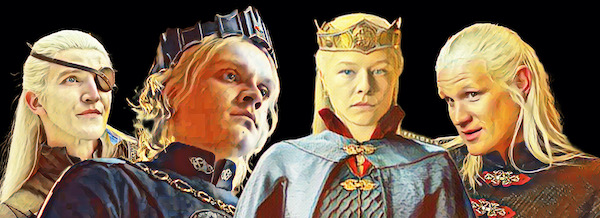
In A Song of Ice and Fire, the basis of Game of Thrones, the books were in the first person, with the prejudices and feelings of whoever signed the chapter, but, in Fire and Blood – the basis of House of the Dragon – the plot is told by a “historian” would give him a distance, but the author mixes testimonies or reports from different people to conclude “what happened” and often what remains “official” is wrong. We readers have fun uncovering the truth because everyone has an agenda. There is space for us to side with what we think is best and question what is on the pages. I swear, even if you don’t like Dragons, Knights, the Middle Ages, or pure fantasy, from this perspective alone it’s worth checking out the work. This is because Martin’s approach to the story includes a focus on the realistic consequences of actions and events and his characters face the harsh realities of war, political maneuvering, and personal ambition, and this basis in realism makes the story more compelling and understandable, despite its fantastic elements.
One of the best examples is seen in Fire and Blood the narrative of a King Joffrey far from the monster we saw in the Game of Thrones series and even Cersei is described as another type of regent than the cruel and vengeful one we know her to be.
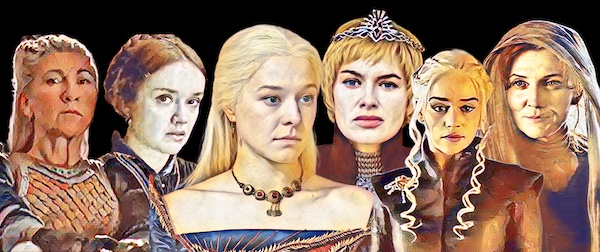
If you come across the passionate defense of fans of one character or another, it is precisely because of this dimension of the work. There are no perfect good guys and although there are psychopaths like Joffrey Baratheon and Ramsay Bolton, in general, and even with them, it is possible to understand them. Not every series can claim to achieve the same.
All of this arrives in House of the Dragon with even greater maturity, even if many grumpy purists complain about the “liberties” that the series’ writers are using to retell the period of the Targaryens’ civil war.
Even in GOT, the universe was so full of characters that it required “eliminating” some and borrowing their stories for others. HOTD isn’t there yet, but there are rumors that it will do the same thing. For example, there is no mention of Sara Snow in the cast, it seems that this mystery with Jacaerys Velaryon will remain in the pages of the book and not on the screen. It also doesn’t look like we’ll have Nettles, which impacts the trajectory of Daemon and Rhaenyra’s marriage. In the first season, they seemed to have eliminated one of Alicent and Viserys’ children, Daeron Targaryen, but it seems he’s coming in the second phase. And so on.
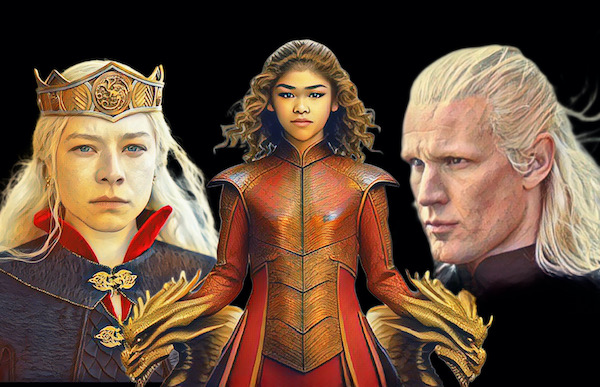
Changing Alicent’s age to create greater drama with Rhaenyra seems to me to be one of the most significant changes that added nothing in terms of drama and worse, took away the rivalry between blood brothers, which was the most impactful thing about Dance with Dragons. Rhaenyra and Aegon virtually ignore each other, their mutual hatred does not have the same effect in the series as in the book.
However, the biggest surprise of the premiere is the “first death” of the Civil War, that of Lucaerys Velaryon. In the official story, he was deliberately attacked by his uncle, Aemond, who hated him for taking his eye when they were still children. In fact, it was a misunderstanding. Neither Aemond nor Luke managed to dominate their dragons, with Vhagar, mounted by Aemond, creating the irreversible stalemate.
When actor Ewan Mitchell said goodbye to us on the hook for the second season, he had a look of panic, the opposite of what we would expect from the bellicose Aemond of literature. As Ewan says, Aemond could come back and admit he was wrong, but his pride will make him lie to pretend courage and strength. Therefore, official History was created based on a distortion of the facts. We know the truth, Westeros doesn’t. Another of the qualities of House of the Dragon creates this complicity with its audience.
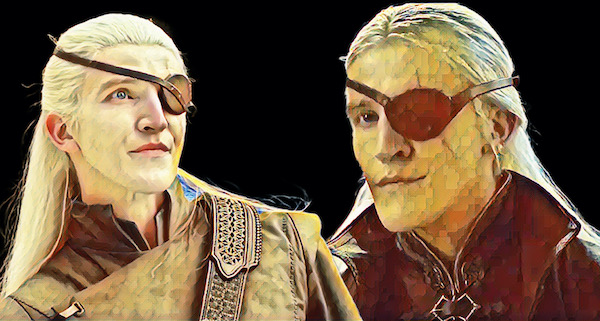
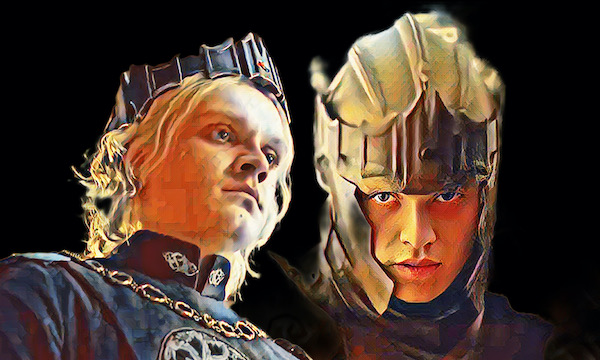
And if Alicent was genuinely mistaken about what Viserys meant about “it must be Aegon” now, it seems, Rhaenyra will take the reputation of having approved the “a son for a son” revenge while being innocent of her nephew’s brutal death. Another historical misunderstanding it seems.
The book’s Rhaneyra is insecure, paranoid, and super thirsty for power and revenge, far from Emma D’Arcy’s sweetness and poise.
What I don’t like is the fact that every civil war is driven by misunderstandings. Once, okay. The second? OK. But the third? It may even seem lazy. Will we be surprised?
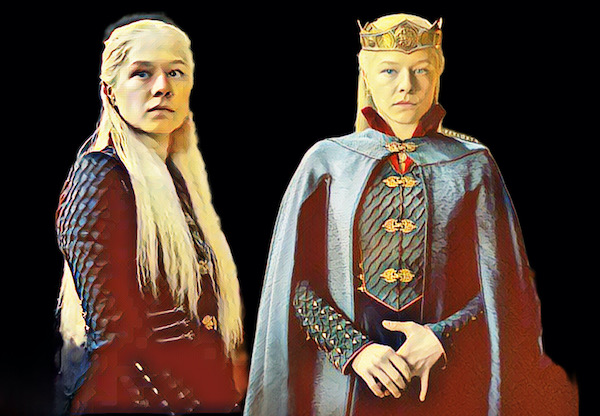
This duality makes Rhaenyra something completely different from what “historians” have described her. I can enjoy the work even more by noticing these differences that make everything deeper. But “purists” hate it because a large part of the public hasn’t read Blood and Fire, so they don’t get the chance to fully get it.
What I repeat is tiring here is not the subtleties, but the formula that seems to be being abused and repeated. On the other hand, what is fact, and what is perception? With just two weeks left until the premiere of the second season, the anxiety is only increasing.
Descubra mais sobre
Assine para receber nossas notícias mais recentes por e-mail.
